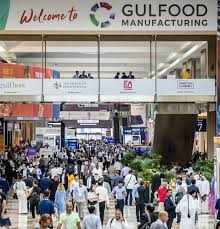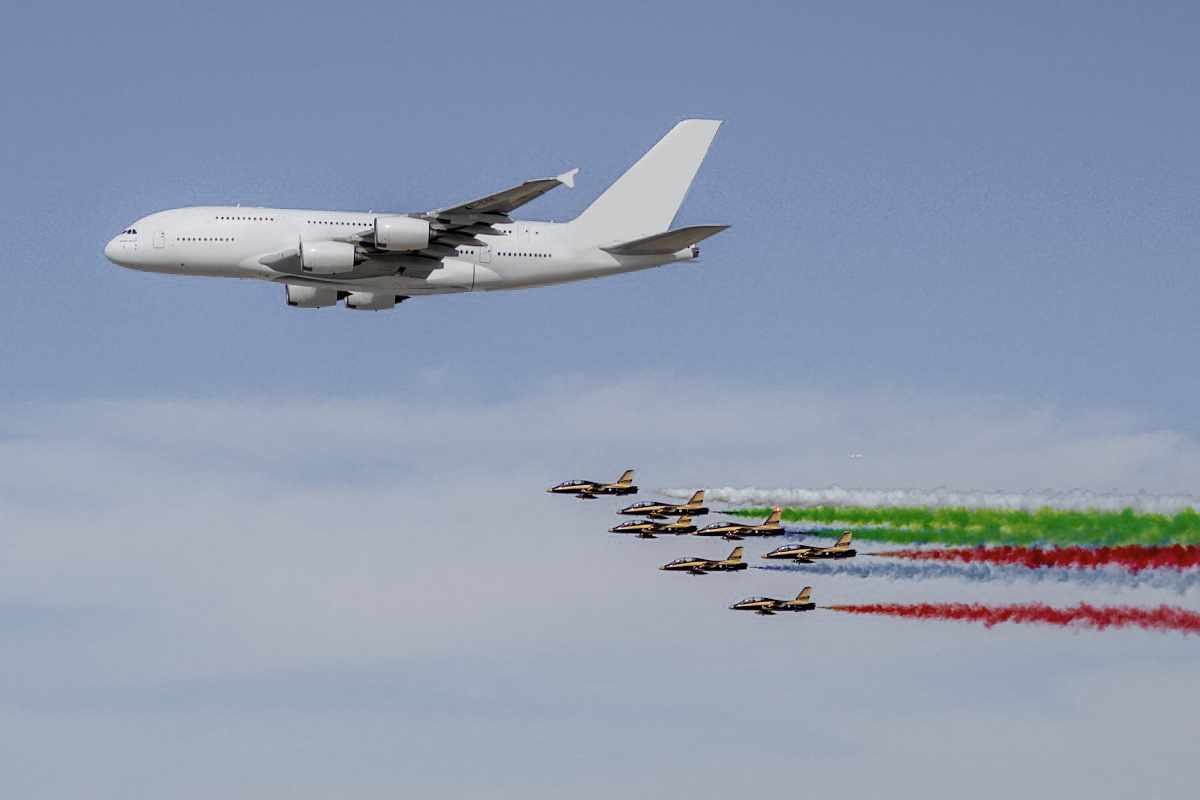
Igniting the Fusion of Circuits and Culinary Craft
Artificial intelligence emerges as a transformative force in the food manufacturing sector, propelling industries toward unprecedented efficiency and innovation. At Gulfood Manufacturing Dubai 2025, held from November 4 to 6 at the Dubai World Trade Centre, industry leaders unveiled groundbreaking applications that integrate AI seamlessly into production lines. This exhibition not only highlighted the convergence of technology and tradition but also underscored the event's role as a pivotal platform for global collaboration. As manufacturers grapple with rising demands for sustainability and precision, AI steps in to redefine processes, ensuring that every batch aligns with exacting standards of quality and safety.
Moreover, the event showcased how AI fosters a resilient supply chain, adapting to disruptions with real-time analytics. Delegates witnessed demonstrations where algorithms predicted yield variations, minimizing waste and maximizing output. This infusion of intelligence promises to elevate food production from mere assembly to a symphony of data-driven decisions. Consequently, companies attending the exhibition, including an innovative Exhibition Company in Abu Dhabi, positioned themselves at the forefront of this evolution, forging partnerships that extend beyond borders. In this exploration, we delve into the key innovations that captivated attendees, revealing how AI not only reshapes manufacturing but also safeguards the planet's resources for future generations.
Precision Forged in Pixels: AI's Mastery Over Quality Assurance and Defect Detection
AI algorithms actively scan production lines with unerring accuracy, detecting anomalies that human eyes might overlook. At Gulfood Manufacturing Dubai 2025, exhibitors like Symrise introduced Symvision AI™, a tool that analyzes formulations in real-time, ensuring flavors and textures meet consumer expectations before packaging. This technology employs computer vision to inspect products for defects, such as irregular shapes in baked goods or contaminants in liquids, achieving detection rates exceeding 99 percent. Manufacturers integrate these systems into conveyor belts, where cameras capture high-resolution images, and neural networks classify issues instantaneously, halting operations only when necessary to prevent widespread errors.
Furthermore, predictive analytics elevates this precision by forecasting potential quality lapses based on historical data and environmental factors. For instance, during the event's Innovation Tours, GEA showcased AI-driven sensors that monitor humidity and temperature fluctuations, adjusting parameters proactively to avert spoilage in dairy processing. This active intervention reduces recall incidents by up to 40 percent, as evidenced by case studies presented. Transitioning from reactive inspections to anticipatory safeguards, AI empowers factories to maintain impeccable standards, fostering consumer trust and regulatory compliance. As a result, food brands gain a competitive edge, delivering consistent excellence that resonates in global markets.
Symphony of Sustainability: AI's Blueprint for Waste Reduction and Eco-Conscious Production
AI orchestrates resource optimization, slashing waste through intelligent forecasting and adaptive scheduling. Gulfood Manufacturing Dubai 2025 spotlighted platforms like those from Tetra Pak, where machine learning models analyze consumption patterns to calibrate ingredient dispensing, curtailing excess by 25 percent in beverage lines. These systems draw from vast datasets encompassing weather impacts and market fluctuations, dynamically reallocating resources to avoid overproduction. Attendees marveled at live simulations where AI rerouted surplus materials into alternative recipes, transforming potential discards into value-added byproducts like upcycled snacks.
In addition, blockchain-integrated AI ensures traceability, verifying sustainable sourcing from farm to fork. The FoodTech Summit featured discussions on how IoT sensors, powered by AI, track carbon footprints in real-time, guiding manufacturers toward greener alternatives. For example, Provisur Technologies demonstrated slicing systems that use AI to minimize trim losses in meat processing, aligning with zero-waste mandates. This proactive approach not only complies with emerging ESG regulations but also appeals to eco-aware consumers, boosting brand loyalty. By weaving sustainability into the core of operations, AI converts environmental challenges into opportunities for innovation and cost savings, ensuring that food manufacturing treads lightly on the earth while nourishing billions.
Forging the Future: AI-Powered Automation and Robotics in Factory Floors
Robotic arms, guided by AI, execute intricate tasks with fluid precision, revolutionizing assembly lines. At the exhibition, DENSO unveiled wok stations automated for stir-fries, where vision systems identify ingredient readiness and adjust cooking times, yielding uniform results across thousands of servings. These robots integrate natural language processing to receive voice commands from operators, enhancing human-robot collaboration and reducing training times. Manufacturers reported throughput increases of 2-3 times, as robots handle repetitive motions tirelessly, freeing workers for creative oversight.
Beyond assembly, AI-driven cobots navigate dynamic environments, learning from each interaction to refine movements. Chef Robotics highlighted perception systems that assemble meals with 91 percent acceptance rates, surpassing manual efforts through adaptive gripping tailored to varied textures. The event's Control & Automation sector buzzed with demos of multi-agent systems, where fleets of robots coordinate via edge computing to optimize layouts, dodging bottlenecks in high-volume plants. This seamless synergy boosts productivity while enhancing safety, as AI preempts collisions through predictive pathing. Ultimately, these innovations democratize advanced manufacturing, enabling small-scale producers to scale ambitiously and compete on a global stage.
The Vanguard of Visionaries: Pioneering Product Development Through AI Alchemy
AI accelerates recipe ideation, sifting through molecular data to invent novel flavors and formulations. Gulfood Manufacturing Dubai 2025's Ingredients Pavilion featured AI platforms from Givaudan that simulate taste profiles, predicting consumer appeal with 85 percent accuracy before lab trials. Developers input parameters like dietary restrictions or regional preferences, and generative models output optimized blends, slashing development cycles from months to weeks. This alchemy extends to functional foods, where AI identifies synergistic nutrients for enhanced health benefits, such as fortified snacks targeting gut wellness.
Additionally, sentiment analysis tools mine social media and sales data to anticipate trends, guiding R&D toward unmet needs. During keynote sessions, experts from EIT Food illustrated how AI personalizes nutrition, creating bespoke products for demographics like aging populations. Nestlé's exhibits demonstrated AI testing virtual prototypes, refining textures for plant-based alternatives that mimic dairy without compromise. By harnessing vast libraries of chemical interactions, AI democratizes innovation, empowering even startups to launch disruptive offerings. As a consequence, the industry surges forward, blending science with artistry to craft foods that not only satisfy palates but also elevate well-being.
Navigating the Horizon: Embracing AI's Ethical Imperative and Global Ramifications
Industry stewards actively address AI's ethical dimensions, prioritizing transparency and bias mitigation in deployment. At the summit, panels emphasized explainable AI frameworks that demystify decision processes, allowing auditors to trace algorithmic choices in quality checks. This commitment builds stakeholder confidence, particularly as regulations like the EU AI Act demand accountability in high-risk sectors like food safety. Manufacturers implement diverse training datasets to eliminate biases, ensuring equitable outcomes across global supply chains.
Looking ahead, AI's scalability promises inclusive growth, bridging gaps in emerging markets through accessible cloud-based tools. The event concluded with calls for cross-sector alliances, fostering standards that harmonize innovation with inclusivity. As AI permeates every facet of food manufacturing, it heralds an era where technology serves humanity equitably, driving prosperity without prejudice. In this balanced evolution, the sector not only thrives but also inspires, setting a benchmark for responsible technological advancement worldwide.
In reflection, Gulfood Manufacturing Dubai 2025 illuminated AI's profound imprint on food manufacturing, from meticulous quality controls to visionary product launches. These revelations compel leaders to invest boldly, harnessing intelligence to cultivate a sustainable, flavorful future. As circuits and cuisine entwine, the industry awakens to boundless possibilities, ready to feed the world with wisdom and wonder.






Write a comment ...